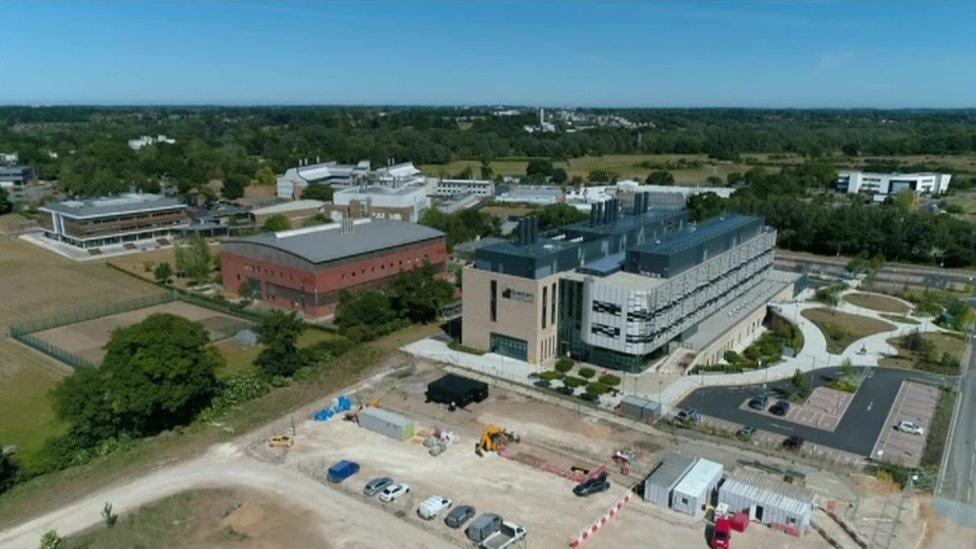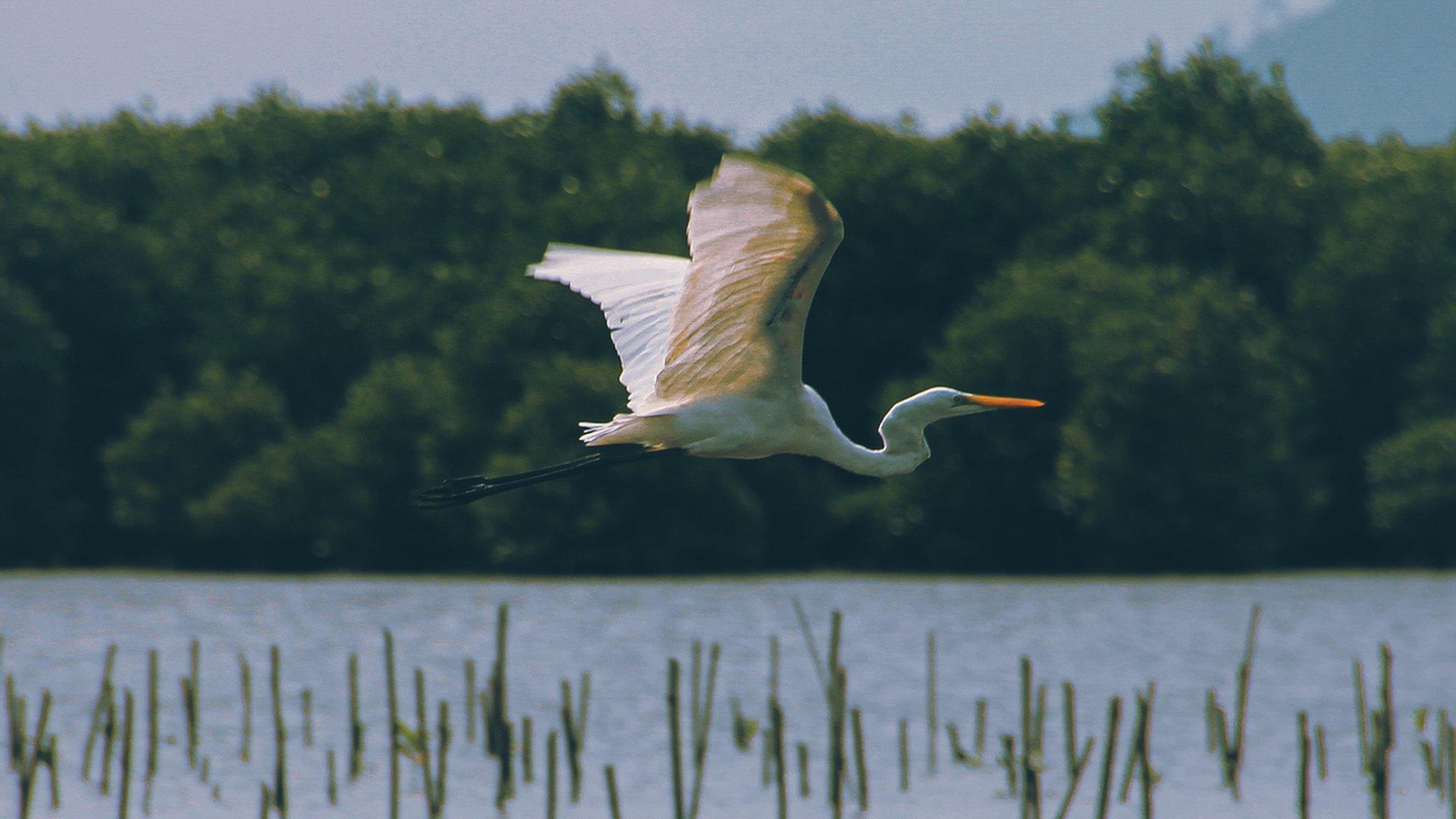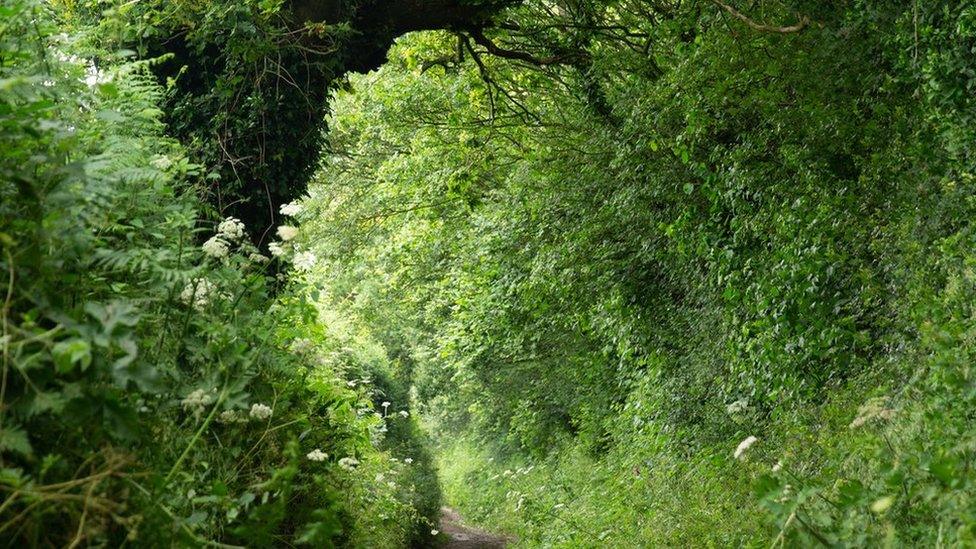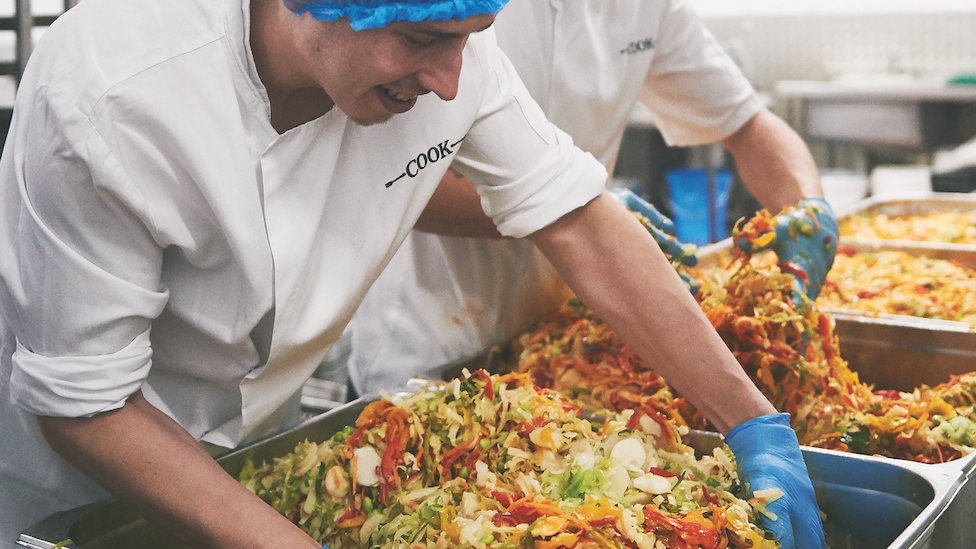Norwich life sciences groups to share £163.9m research funding
- Published

The funding will go towards research into sustainable crops and biodiversity
Three life sciences groups will share £163.9m of funding over the next five years, the government has announced.
The money will go to the Earlham Institute, John Innes Centre and Quadram Institute, which are all based at the Norwich Research Park.
It was part of more than £376m invested by the Biotechnology and Biological Sciences Research Council (BBSRC).
Roz Bird, from Norwich Research Park, said research work would "help improve the lives of people around the world".
The BBSRC is part of UK Research and Innovation, which directs funding from the science budget of the Department for Business, Energy and Industrial Strategy (DBEIS).
The Earlham Institute will get £31.4m for research into cellular genomics - the study of the genetic makeup of a single cell - and biodiversity.

The three groups are based at the Norwich Research Park
Prof Neil Hall, Earlham Institute director, said it was "embarking on an incredibly ambitious, highly-collaborative, and multidisciplinary programme of research we believe will be transformative for the field of life science - as well as benefiting global society in the long term".
The John Innes Centre will receive £76.6m for work into plant and microbial science, including research into sustainable, resilient and robust high-yielding crops.
Director of the centre, Prof Graham Moore, said the group and others on the research park were working on "the challenges of transitioning to net-zero agriculture, improving public health and mitigating the effects of climate change on food security".
Quadram Institute Bioscience will also get £55.9m for research programmes focused on gut health, microbiology and food.
Director Prof Ian Charles said the funding allowed the Institute to "focus on delivering science programmes to promote human health and help tackle real-world global problems such as food spoilage and the hidden hunger caused by deficiencies in key micronutrients essential for health".

Find East of England news on Facebook, external, Instagram, external and Twitter, external. Got a story? Email eastofenglandnews@bbc.co.uk, external or get in touch via WhatsApp on 0800 169 1830
Related topics
- Published19 April 2023

- Published1 December 2022

- Published9 August 2022
